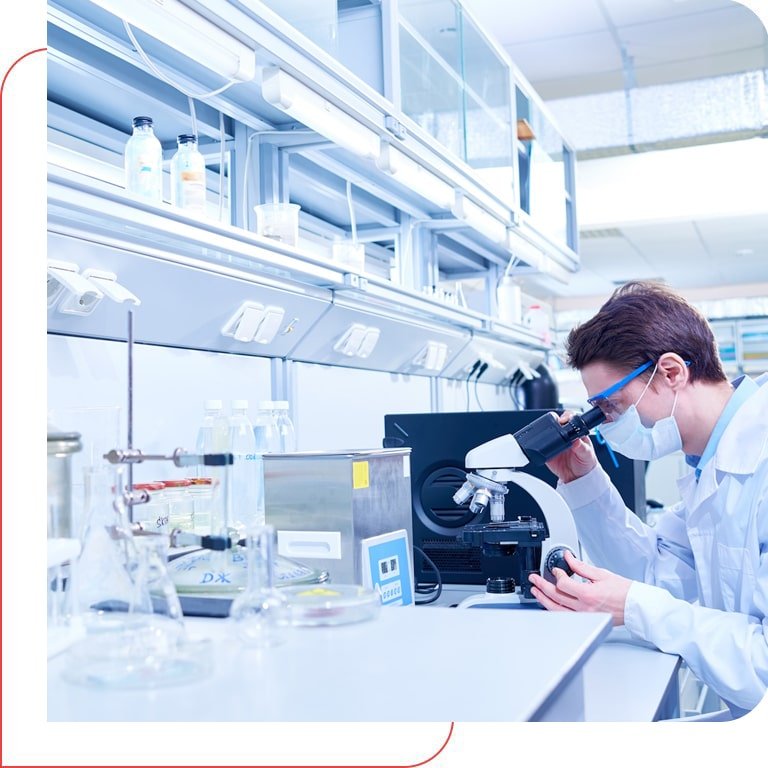ISO 17025:2017 Laboratory Management System
ISO/IEC 17025 is the global quality standard for testing and calibration laboratories. It is the basis for accreditation from an accreditation body. The current release was published in 2017.
Laboratories play an important role in company quality systems. The ISO/IEC 17025 (1) can be used as a standard to develop and establish a quality system for a laboratory, and also for assessment by laboratory clients or third parties. The standard can also be used as a criterion for laboratory accreditation. Working according to global standards is especially important for laboratories to ensure validity and global comparability of test & calibration results. One of the goals of using global standards is to reduce the number of tests required in national and international trading.

Benefits of Correctly Implemented ISO/IEC 17025:
- Implementing ISO/IEC 17025 as part of laboratory quality initiatives provides benefits for both, laboratory and business, such as:
- Having access to more contracts for testing and/or calibration. Some public and private organizations only give contracts to accredited laboratories. Accreditation will also help in getting more contracts from organizations that don’t mandate accreditation, but do give preference to accredited laboratories in competitive situations.
- Improved national and global reputation and image of the laboratory.
- Continually improving data quality and effectiveness of the laboratory.
- Having a basis for most other quality systems related to laboratories, such as Good Manufacturing Practices and Good Laboratory Practices.
- Harmonization with other ISO standards due to Annex SL
Key Steps towards Accreditation:
There are eight key steps towards laboratory accreditation:
- Management defines a project owner.
- The project owner studies details of the standard, supporting literature, and other relevant information
- The project owner defines the preliminary scope of accreditation, and works with laboratory professionals to prepare a list with requirements.
- The project owner and laboratory professionals perform a gap analysis to determine the difference between the requirements and what is currently implemented in the laboratory.
- Based on the outcome of the gap analysis, the project owner, laboratory professionals, financing and documentation professionals, and external consultants estimate the costs for accreditation.
- Estimated costs are presented to management, along with incremental opportunities.
- Management decides to proceed with accreditation.
- The project owner leads implementation steps.
What do we offer for ISO 17025 Certification (Accreditation) for your organization?
With a team of highly qualified consultants and trainers having vast industrial experience, Vanguard Consulting & Inspection Services partners organizations across the world to implement and achieve ISO 17025 certification (accreditation). Our consultation approach is highly professional, time bound and effective resulting in ease of implementation and adds value to the business processes of the client organization.
We offer ISO 17025 training, implementation, consultation, gap analysis, documentation, internal audits, pre-assessment audits, certification audit through best of the certification(Accreditation) bodies and post certification (Accreditation) enhancement / maintenance services to enable your organization get the best out of ISO 17025 quality (Lab) management system. Our services are globally accepted, authoritative and benchmarked in the field of ISO 17025 LMS.
Our roadmap for your business success

Develop vision &
objectives

Understanding existing
process

Identify change
levels

Implement new
process

Evaluate the new
process


